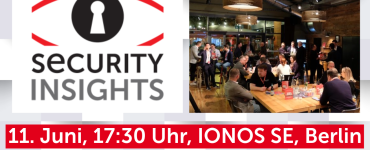Whether it’s vaccination certificates, ID cards, driving licences or school reports: Our everyday life is still too heavily reliant on physical documents, thus inhibiting digitalisation. This is the view expressed in interview by eco Board Member Prof. Norbert Pohlmann. But with Self-Sovereign Identity (SSI), processes in public administration, business and society can be massively simplified and many processes can now be digitalised in a secure and trustworthy manner.
Mr. Pohlmann, why are digital identities so important for advancing digitalisation?
If there’s one thing clearly shown by the current debate on the digital vaccination certificate, it’s this: Important and personalised credentials should also be available to us digitally. Always having our vaccination certificate with us on our mobile phone would make so many processes easier. If, for example, we’re heading to to a restaurant or a concert, everything can then be effortlessly checked and processed in an automated way and in a secure and trustworthy manner. This is just one of the many advantages that can even have a positive impact on a country’s gross domestic product. According to a study, by 2030, digital IDs are set to enable an economic benefit equivalent to 3-4 percent of GDP.* For this reason, companies should start getting familiar with these IDs in order to reap the best possible benefits for themselves.
What can be digitally verified?
The spectrum is extremely diverse – whether it’s to do with birth certificates, building permits, further education certificates, booking confirmations, proof of salary for a loan or certificates for a job application. One typical standard process would be a car rental. It would be so much easier if I can present a driving licence, credit card and ID card as verifiable digital credentials. I would then simply provide the car rental company with the necessary digital credentials via a mobile phone app, allowing their digital systems to check and process these in an automated way. There would then be no need for time-consuming computer input, which would ultimately save time and money for everyone. To enable even better digitalisation, having applications implement these options would therefore make a lot of sense.
How can the related credentials be carried out digitally?
The goal is a European ecosystem for issuing and verifying digital identities and credentials based on Self-Sovereign Identity (SSI). Here, users are in possession of their own digital identities and other verifiable digital credentials, so-called Verifiable Credentials (VC), and can also control these without having to rely on a central authority. This can free us from dependence on individual monopolistic providers and promote independent and faster digitalisation. In this way, we can strengthen privacy in particular and enable users to deal with their private data in a sovereign manner.
What is meant by “self-determined” identities?
Self-determined means that all users can decide for themselves which application they want to use to provide their digital identity data and further credentials, and when they want to do so. For example, a citizens’ administrative office can issue a digital driving licence or further digital authorisations, such as a transit permit or a dog licence. Users can then have these digital credentials in their smartphone – for example, in their SSI app – and make them available to any agency that needs them to verify a process. A good example of a useful application is the provision of verifiable digital credentials to a potential employer to whom someone is applying for a job. And if this job works out, directly on the first day of work, a corresponding access regulation in the building can then also be stored in the service ID card. The range of applications is therefore extensive.
What role do blockchain and other distributed ledger solutions play in this?
In the SSI ecosystem for digital identities, three actors play a role: the issuer, the owner and the verifier of the identities. For these three, blockchain is an ideal and fitting trust service because, as a decentralised network, it provides IT security and trustworthy mechanisms. Actors are able to verify both the authenticity and origin as well as the integrity of digital identity data and credentials without the blockchain knowing the actual identity or digital credentials of the users. In addition, the dependence on a central institution is no longer necessary when using a blockchain. A blockchain operated by a consortium is the ideal way to manage the information for verifying digital credentials in a blockchain-based ecosystem. The eco Association is also currently working on a standardised and open Blockchain Governance Framework to ensure greater trustworthiness in the operation of a blockchain, particularly in the SSI environment.
Mr Pohlmann, thank you very much for the interview!
*Source: MGI Study “Digital identification – A key to inclusive growth”; IHS Markit




